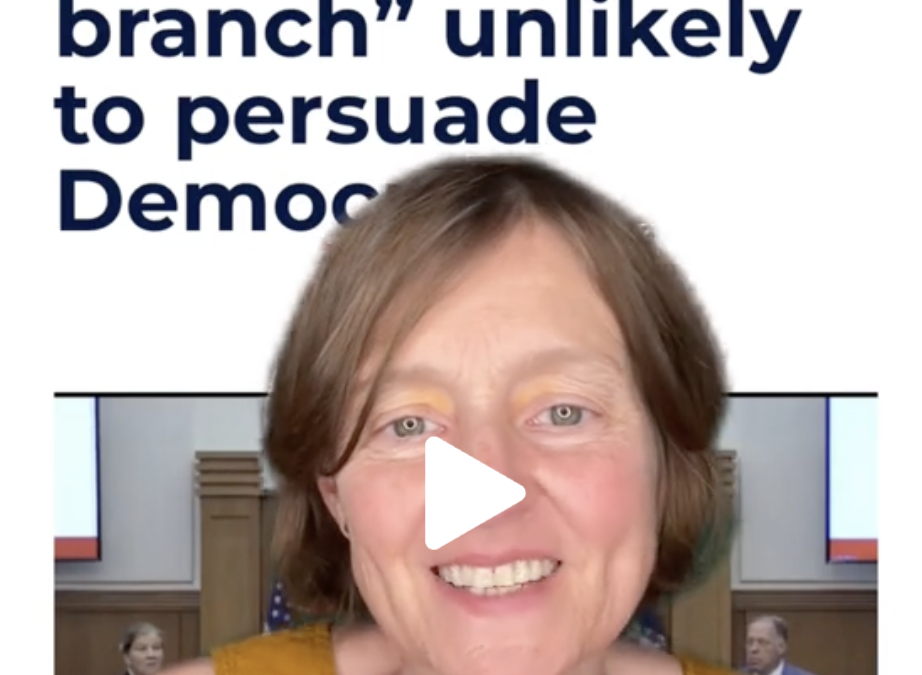Angelica Felder’s dream of going to college were in jeopardy, and with them, so was her hope of becoming a nurse. But then she received a scholarship to George Mason University through the school’s Early Identification Program (EIP), an initiative that helps first-generation students become the first in their families to attend college in the United States.
“If I hadn’t won the scholarship, I don’t know how I would have gone to college. I don’t want to say that I couldn’t have done it because I worked really hard and I always loved school, but it would have been a lot harder,” Felder said.
Felder, who attended T.C. Williams High School in Alexandria, was raised by a single mother who never graduated college. “For me the EIP was life changing, I’m really thankful.”
Felder is one of thousands of students to participate in the program over the last 32 years. First established in 1987, the program partners with school districts to provide students with academic, career and developmental resources so that students can acquire and develop knowledge and skills that will help them transition into colleges or universities.
The program is a rigorous one; students who apply and are selected to participate are committing to a five-year commitment starting in 8th grade, including three weeks of classes every summer.
There are currently about 650 students enrolled in the program across seven localities in Northern Virginia: Alexandria, Arlington County, Fairfax County, Falls Church, Manassas, Manassas Park, and Prince William County.
The program
There are three main components to the Early Identification Program.
- The Academic Mentoring Program – A weekly, two hour after-school tutoring session in which George Mason students mentor high school students through most of the school year.
- Weekend workshops – Students attend a series of STEAM (science, technology, engineering, the arts and math) related workshops during the school year, and also receive guidance on college entrance test preparation.
- Summer Academy – Rising 9th through 12th graders commit to three weeks of intensive classes and academic enrichment programs at Mason’s Fairfax and Prince William campuses. During these summer sessions, students focus on preparing for courses they will take in their upcoming high school academic year.
EIP is really focused on what Jodie Peters, T.C. Williams High School’s EIP coordinator, describes as “the hidden curriculum” of getting into college. As a result, the program not only focuses on academics, but also emphasizes personal and social development, civic engagement, leadership opportunities, and career readiness programs.
The program also includes a significant parent component, including family seminars that help parents who’ve never attended college in America to learn about the higher education system in the United States.
Peters says that the program provides support to first generation students and their families by talking about career pathways and making them aware of all the options they have. “Our goal is to ensure that these first generation students know how to get to college,” Peters said in an interview.
Khaseem Davis, Director of the Early Identification Program, echoed Peters’s sentiment. “The work is very student-centered. We really take pride in trying to provide that supplemental piece to students and working to give students space and agency around their education as it pertains to college preparedness,” Davis said in an interview.

Who is eligible for EIP
Using guidelines set by George Mason, EIP coordinators like Peters recruit 8th graders to apply for the program. In order to be selected for the program, students must be first-generation, be in average-to-above-average academic standing, and have two letters of recommendation from teachers.
“We’re looking for students who have strong recommendations from teachers,” Peters said, emphasizing that because the program is so rigorous, it’s important that students who apply are committed learners. Peters also looks at students’ pass rates and performance on state-mandated courses when determining who might be a good fit for the program.
The application process also involves a series of mini essays to gauge students’ motivation, aptitude and background.
Peters says that she and others involved in the program are transparent with students and parents about the level of commitment associated with the program, so that they know what they’re getting themselves into.
There’s no cost for students to participate in the program, as George Mason and its school system partners work together to cover all program-related costs.
In Alexandria, the school system accounts for the per-student EIP membership fees in its operating budget and also receives in-kind support and grants to help cover other costs. “We make it accessible. We don’t want transportation or funding for lunch in the summer to be an issue of why a student may not participate,” Peters said.

Getting to college
“The goal of the program is that students figure out their pathway so they have some level or organized educational plan after high school,” Peters said.
Students who participate in EIP must apply to the honors program at George Mason and are eligible for one of nine full scholarships and several partial scholarships, which Davis said are offered based on academic performance and financial need.”
Students have to be really committed, we look at that group of seniors who have the highest percentage of attendance rates coupled with a 3.5 GPA or above and we invite them to apply for the scholarships,” Davis said.
Students who are selected for EIP are not bound to attend GMU, but half of all students involved in the program decide to enroll at George Mason.
Indeed, EIP serves a pipeline of sorts for George Mason, a school that prioritizes a diverse student body. In 2018, the U.S. News & World Report ranked GMU as being the most diverse university in Virginia.
The priority for EIP is to help students go to college, regardless of where that is. “My metric of success is whether or not the student goes to college. First and foremost, we’re a college access program,” Davis said.
Peters said her goal is to help students select a school that fits them well, whether it’s George Mason or elsewhere. Many students do wind up selecting George Mason, she says, because after four years of going to the campus, they feel comfortable there. There are currently 215 EIP alumni attending the university, according to Davis.
Students also attend other universities, including two-year schools, and a few have even decided to enroll in the military.
In total, 95% of students involved in EIP go on to pursue college degrees.

Success
Aside from guiding students along the path to college, Davis says “making sure that students voices are heard” and “helping students become self-advocates” are also really important to him.
Peters views success as continuing to grow the program and retain students from year to year. When she started as Alexandria’s EIP coordinator six years ago, retention was an issue. “If 6 or 7 students were being admitted the first few years, 2 or 3 might have completed graduation while still being connected to the program.” Peters recognized the need to invest more in students and increase the level of support and resources in order to increase retention. She advocated for more funds, spoke to parents and revamped the recruitment process.
Retention numbers have improved as a result of her work, and thanks to a recent grant from Alexandria City’s Fund for Human Services, Alexandria City Public Schools was able to enroll an additional 20 students in the program this year, bringing the total to nearly sixty students.
Peters is focused on continuing to advocate for and support first generation students. “It’s extremely apparent that we need to provide resources for students who have been marginalized,” she said. She believes EIP does a great job of providing that support, by teaching students that they have agency, but she knows there’s more to do. “How do we make sure that we continue to support them and make sure those resources are available?”
On top of helping current EIP students, Davis said another metric of success for him is whether EIP alumni, particularly those who attend George Mason, are giving back. “Are those students actually giving back to the program in some way, shape or form. Are they engaged in leadership activities at the university? Those are things that I look for as far as success is concerned.”
Angelica Felder is one of those students who gives back. Felder, who is now studying Community Health at George Mason, returns weekly to T.C. Williams to mentor Alexandria’s EIP students.
“It’s nice to be able to help and give back,” Felder said.
Politics

Virginia NAACP to sue Youngkin over handling of DEI records requests
The civil rights group said it would take Youngkin to court for not releasing communications between his office and state universities related to...

VIDEO: After vetoes, Youngkin’s budget “olive branch unlikely to persuade Democrats
Can the Democrats in the General Assembly and Republican Gov. Glenn Youngkin really find "common ground" among his proposed state budget amendments?...
Local News

Virginia verses: Celebrating 5 poetic icons for National Poetry Month
There’s no shortage of great writers when it comes to our commonwealth. From the haunting verses of Edgar Allan Poe, who found solace in Richmond's...

Join the fun: Recapping Family Literacy Night’s storybook adventures
When’s the last time you read a book aloud with a loved one? If it’s difficult to answer that question, then maybe it’s time to dust off that TBR...




